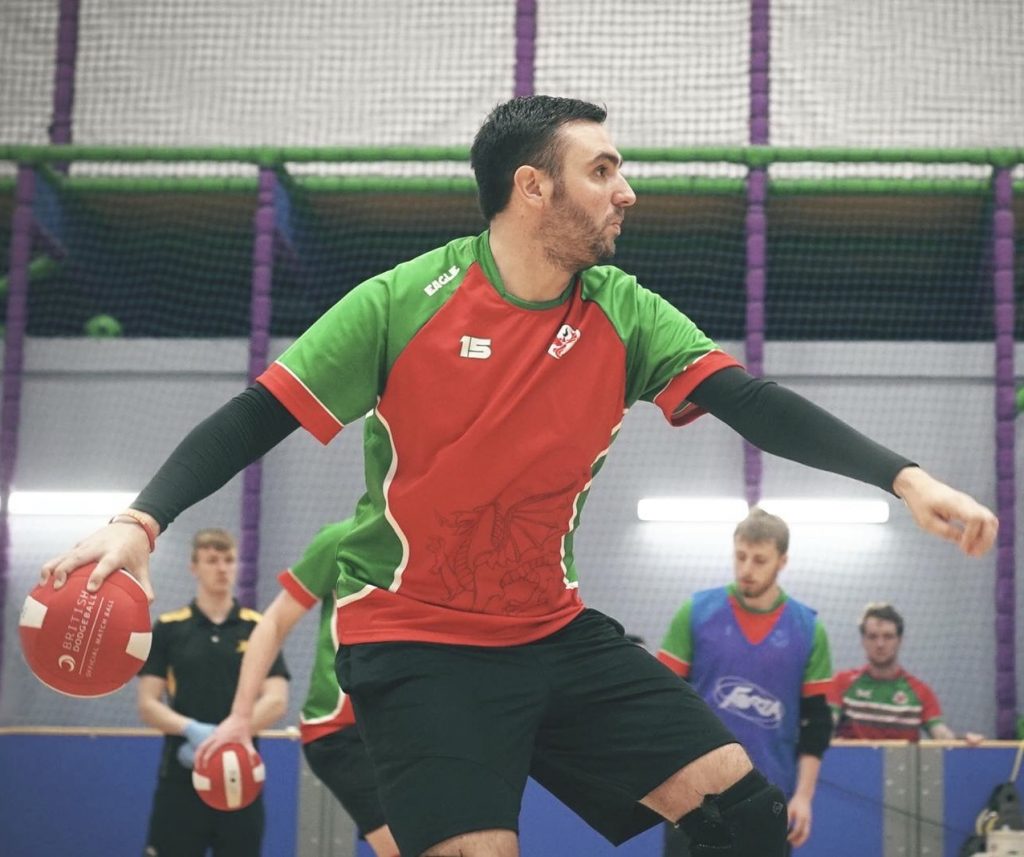Guest Blogger: Phill Williams (BA Culture, Society, Communications, 2008), Careers Consultant
The 5 D’s of Dodgeball are: Dodge, Duck, Dive, Dip and Dodge.
Most weekends I play dodgeball. Most of the time, I compete in league competitions and tournaments with my local club. Some of the time, I even get to compete for my national team, Wales. To be a successful dodgeball player, there are a range of skills you need to possess, some of which are in the 5 D’s listed above, along with some tactical know-how, a decent level of fitness, and a positive attitude.

During the week, I’m a Careers Consultant for the University of Birmingham. A fundamental part of the role of a Careers Service in a Higher Education institution is to help prepare our students for the world of work. You’ll often hear careers service professionals and many academics seemingly going on forever about transferable skills, such as teamwork, communication, and problem solving. But have you ever wonder why do we do that?
As a way to fill our time in the week? Not really.
Because we think it’s a nice to have? To an extent.
Or is it because graduate employers are demanding these skills and attributes of their future workforce. Absolutely.
In the current climate, employers are informing us that many graduates are entering the workplace really well-equipped in certain areas, namely collaboration, interpersonal skills, and problem solving. However, the same cannot be said of other attributes as “…just 31% of employers think that graduates have resilience and 39% think graduates have self-awareness” (ISE, 2018). In other words, just over 1 in 3 students, are deemed to have the necessary tools to be successful in the workplace.
I know what you’re thinking. We keep hearing this need for “resilience”, but what on earth does that even mean? And why is it important?
Well let’s start with tackling the former. There are two dictionary definitions that outline what resilience is:
- “The ability of a substance or object to spring back into shape; elasticity” OR
- “The capacity to recover quickly from difficulties; toughness.”
Okay, so I think it’s fair to say as human beings, and not material objects, we’re probably not suitable for the first definition, but the second one, well, that’s a different story.
Let’s take an example that we as Careers professionals see each and every day with our students.
According to research from ‘The Institute of Student Employers’, applications for a graduate job, or a place on a graduate scheme, are just as competitive as ever with “employers indicating an average of 41 applications for every graduate vacancy”. What does this mean? My very simple conclusion is this:
Failure is inevitable.
Wow. Strong statement I know, but let me explain.
As a graduate, you will navigate your way around the labour market, and in the scary world of recruitment & selection, you will likely apply to a number of opportunities that interest you, whether that is a Graduate Job, Further study or otherwise. Probability will suggest that you are unlikely to get offers for everything you apply for, regardless of how amazing you are. You will be even more unlikely (although it’s possible), to be successful in your first application. In other words, whether it be at an initial application stage, or in an interview, you are likely to fail in an application at some point.
You aren’t the first, you won’t be the last. It’s certainly nothing to be ashamed of.
At the end of the day, you only need one application to go your way to be successful. You’ll fail at more than you achieve with. The crucial thing is, you will learn lessons, reflect on your performance, make changes & adjustments, move forward, and apply it all the next time around.
So how does this relate to dodgeball I hear you ask? Well, dealing with failure is an on-going process, and for players like me, a fairly regular experience. Every time I’m hit out, or a ball I’ve thrown is caught by the opposition, I have, in essence, failed. In the first couple of years playing especially, I would get ever increasingly frustrated with myself, and even question why I even bother playing, after being caught out for the 2387th time. My mentality therefore, was not as strong as it could have been, or even, should have been. I wasn’t coping with failure. I wasn’t demonstrating resilience.

However, there were a couple of things I did to try and overcome this. Firstly, I tried to look at trends as to why I failed, and looked at where I could make improvements to my game. I’ve discussed with other players what I’d noticed, and put plans in place to test myself to improve, even if it meant forcing myself to fail again. Consequentially, I’ve drastically improved the timing and accuracy of my throwing, I’ve looked to improve my tactical understanding of the game, and I’ve tried to refine my catching technique. Most importantly though, I’ve accepted that getting caught out, or hit, is a part of the game, and happens to all players, even the best ones (sound familiar?). This quote from Michael Jordan, arguably the greatest basketball player of all time, sums my point up nicely:
“I’ve missed more than 9,000 shots in my career. I’ve lost almost 300 games. 26 times I’ve been trusted to take the game winning shot and missed. I’ve failed over and over and over again in my life. And that is why I succeed” (Michael Jordan)
Over the last two years of my dodgeball career, I’ve subsequently been called up to play for Wales, and competed in the European Dodgeball Championships, and I’ve now progressed to move into a coaching role. At club level, I’ve finally (after many attempts), won my first tournament winners medal. Resilience has played a huge part in allowing me to achieve these things, and will continue to do so. I’ve still failed plenty even during that relative success (don’t ask any Welsh Dodgeballer about our Quarter Final failure against the Czech Republic), but I’ve learnt to utilise my own coping strategies to deal with that.
So my advice for students and graduates is this. You will inevitably experience setbacks in your career journey, whether that be in the application & selection process for your first graduate job, or even further down the line in the job itself. Regardless of the role, sector or industry, mistakes & failure happen each and every day. Learn to deal with them in your own way, and take the learning from them to enhance your approach in the future. In the words of Will Smith (see video below):
“Fail Early, Fail Often, Fail Forward”

thank you bham for giving me wonderful information